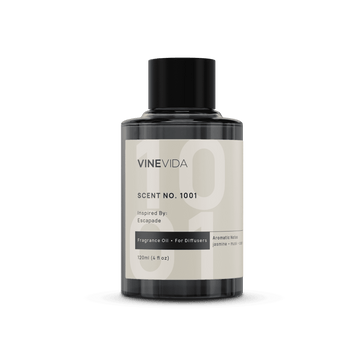Scientific Name: Syzygium Aromaticum
Origin: Indonesia
Plant Part: Buds
Scent: Spicy, Warming yet Slightly Bitter
Color: Pale Yellow
Consistency: Medium
Perfumery Note: Middle
Initial Aroma Strength: Strong
Extraction Method: Steam Distilled
Clove Bud Essential Oil: Uses, Benefits, and Blends
The sweet and smoky scent of Clove is famous worldwide. Many different countries make use of this spice for cooking, but our Clove Bud Essential Oil is far more versatile than that. At VINEVIDA we source our Clove Oil from Indonesia, where the pleasing climate helps grow strong, aromatic crops.
Have your house smell like an autumn dessert all year round by diffusing Clove Oil, or add it to soaps and candles for a festive flair.
Clove Bud Essential Oil comes from the flower buds of the Clove tree. It belongs to the family Myrtaceae, which also includes Eucalyptus and Allspice. Clove Bud Essential Oil belongs to the species Syzgium Aromaticum and is native to Indonesia. Cloves are a very popular spice in Asian, Mediterranean, and Middle Eastern cuisines, and can be added to both food and beverages to give a hint of spice. Cloves are also famous for being an ingredient in cigars, and due to some bioactive constituents, the spice can even help to repel ants! For medicinal purposes, you will often find Clove Oil used to treat toothaches and gum pain, acting as an analgesic. Let’s take a closer look at the components that make up Clove Oil, and a few of the most popular Clove Bud Essential Oil benefits and uses!
Clove Bud Essential Oil Benefits: Component Breakdown
- Eugenol: In Clove Bud Oil, Eugenol usually makes up 80-90% of it. You can also find eugenol in Nutmeg, Cinnamon, and Basil. It’s what gives Clove spice its characteristic scent. In addition to being an antiseptic and analgesic, Eugenol is also in perfumes as well as different foods and beverages for flavoring. It is one of the main components that help us with the Clove Bud Essential Oil benefits.
- b-Caryophyllene: b-Caryophyllene is a unique sesquiterpene. This is because it is capable of interacting with cannabinoid receptors, but without causing any psychoactive effect. It is a major component of Black Pepper and has a dark, spicy aroma. It is also an effective anti-inflammatory agent.
- Eugenyl Acetate: A benzoate ester, Eugenyl Acetate is classified as a phenol. It offers a mild aroma of Cloves, and you can find it in use as a flavoring and fragrance additive. It’s another component that contributes to Clove Bud Essential Oil benefits.
- a-Caryophyllene: Similar to beta-caryophyllene, alpha-caryophyllene is another sesquiterpene and also smells of Black Pepper.
- Isoeugenol: Isoeugenol is a pale-yellow liquid and an isomer of eugenol.
- Methyleugenol: Methyleugenol, as the name indicates, is derived from eugenol. It has a Clove-like aroma and is used as both a fragrance and a flavoring agent.
Clove Bud Essential Oil Uses: For Wholesale Purposes
Field of Dentistry
Dentistry is a unique one from the Clove Bud Essential Oil uses list. Preliminary studies into the use of Clove Bud Essential Oil in dentistry show promising results. A study on erosion established that clove oil might work in a way similar to fluoride. It also works as an effective analgesic, and researchers believe it may be a good alternative to other topical anesthetics.
Soap Making

When it comes to using Clove Bud Oil in soap, there are a few precautions to be aware of. It is a very potent oil and can be very strong. It is important to follow the exact guidance of the recipe you are using. Another thing to note about Clove Oil is that it can accelerate trace. That being said, Clove Oil blends well with many other essential oils, adding a spicy warmth to your fragrance. This makes it great for holiday soaps or more masculine products.
Aromatherapy
Aromatherapy is one of the most popular ones from the Clove Bud Essential Oil uses list. The warming aroma of Clove Oil is especially great for the fall and winter. Have your guests picturing a pumpkin pie in the oven, as the warm, spicy aroma is diffused around your home.
DIY Festive Holiday Spray
- 3.5 oz Spray Bottle (Preferably Amber Glass)
- Cinnamon Leaf Essential Oil (Cinnamomum Verum)- x 10 Drops
- Orange Essential Oil (Citrus Cinensis)- x 45 Drops
- Rosemary Essential Oil (Rosmarinus Officinalis)- x 15 Drops
- Clove Essential Oil x 15 Drops
- 1 oz Witch Hazel
- Distilled Water
Add witch hazel and essential oils, then shake well and leave for two hours. Shake again, and add the water to fill up the bottle. Store in a cool, dark place and shake before misting. Keep away from pets and small children.
Clove Bud Essential Oil Blends: Best Suitable Oils
Clove blends well with other rich scents like Frankincense, Myrrh, and Cedarwood. You can also blend it with Orange, Ginger, Balsam Fir, and Cinnamon Essential Oil for a holiday vibe.
Precautions
Clove Bud Essential Oil can act as an allergen, or cause skin irritation. On rare occasions, it can also cause severe allergic reactions, including anaphylaxis. Never ingest essential oils, and be very careful with your dilution methods if you plan on using clove oil topically. Several drugs can interact with Clove Oil, so if you’re taking medication or suffer from underlying conditions it's best to consult with a professional before use.
Flash Point
>93 °C
Conclusion
Clove Oil offers a warm, inviting fragrance and makes a great additive to natural hygiene and cosmetic products. Additionally, it has the potential to offer further benefits in terms of health and wellness due to its analgesic properties. However, it is always important to take the proper care and respect when using essential oils. They might be natural, but they are also very strong! Our favorite Clove Bud Essential Oil uses include adding it to soaps, holiday candles, and festive diffuser blends.

- Reviews
- Questions


You may also like
Recently viewed

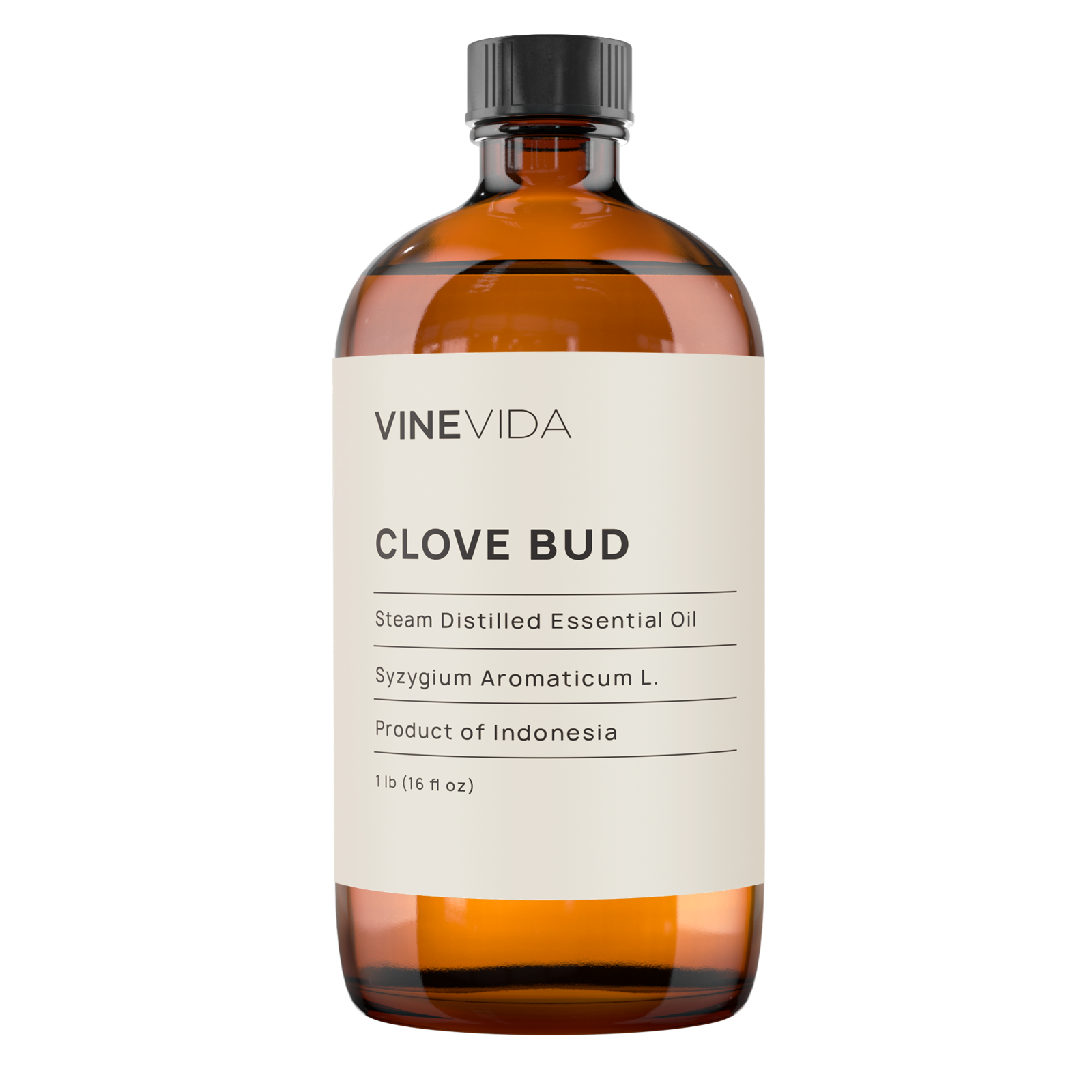
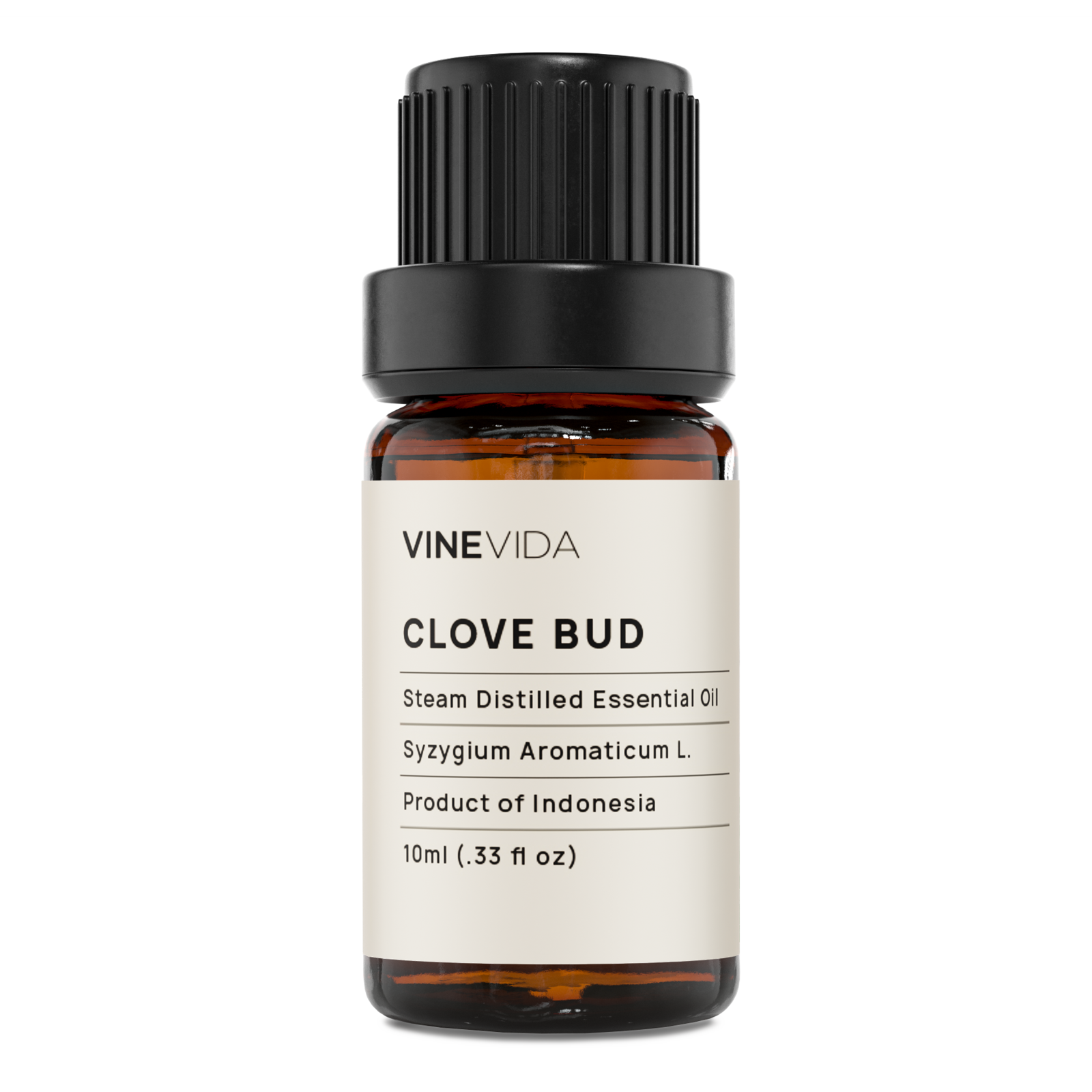
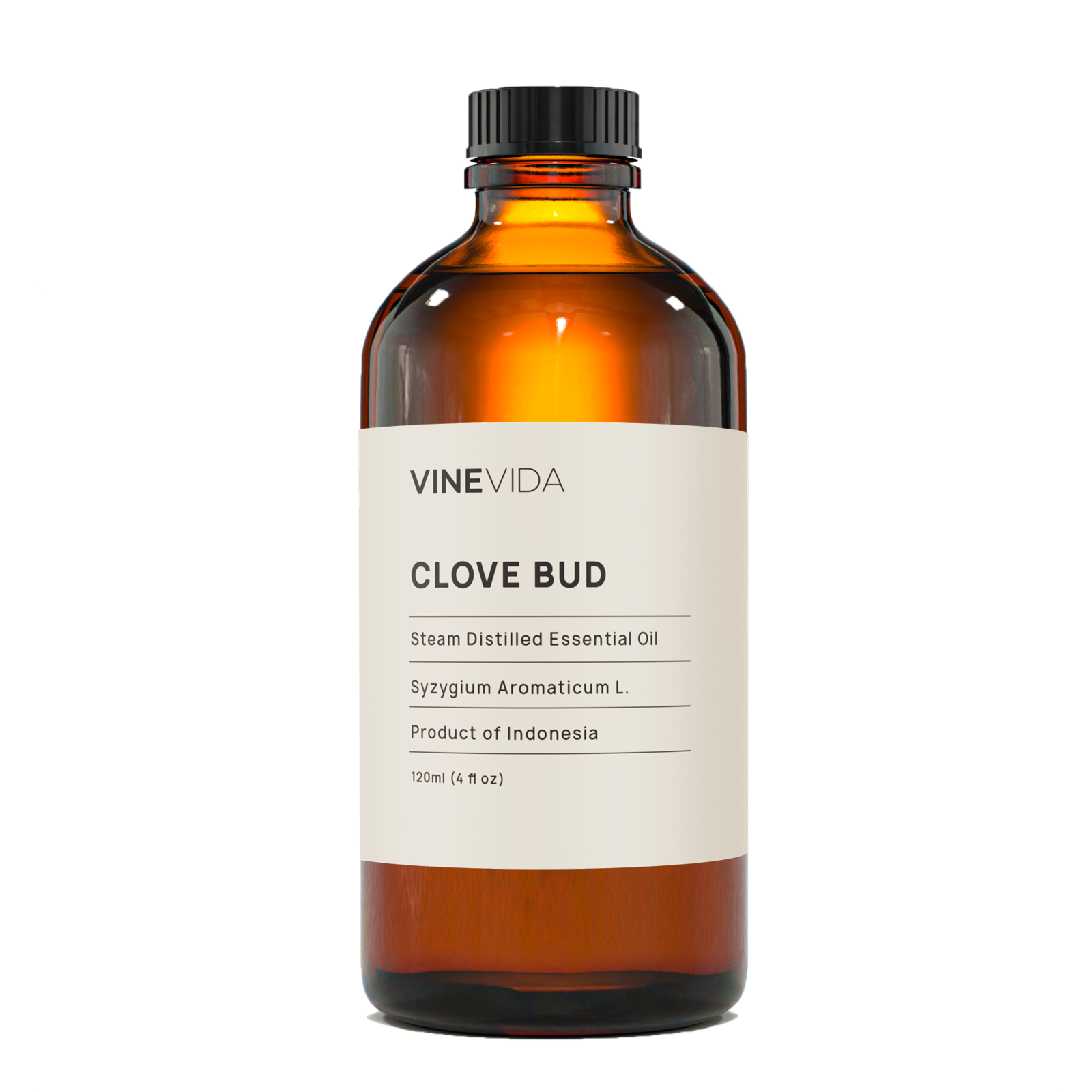
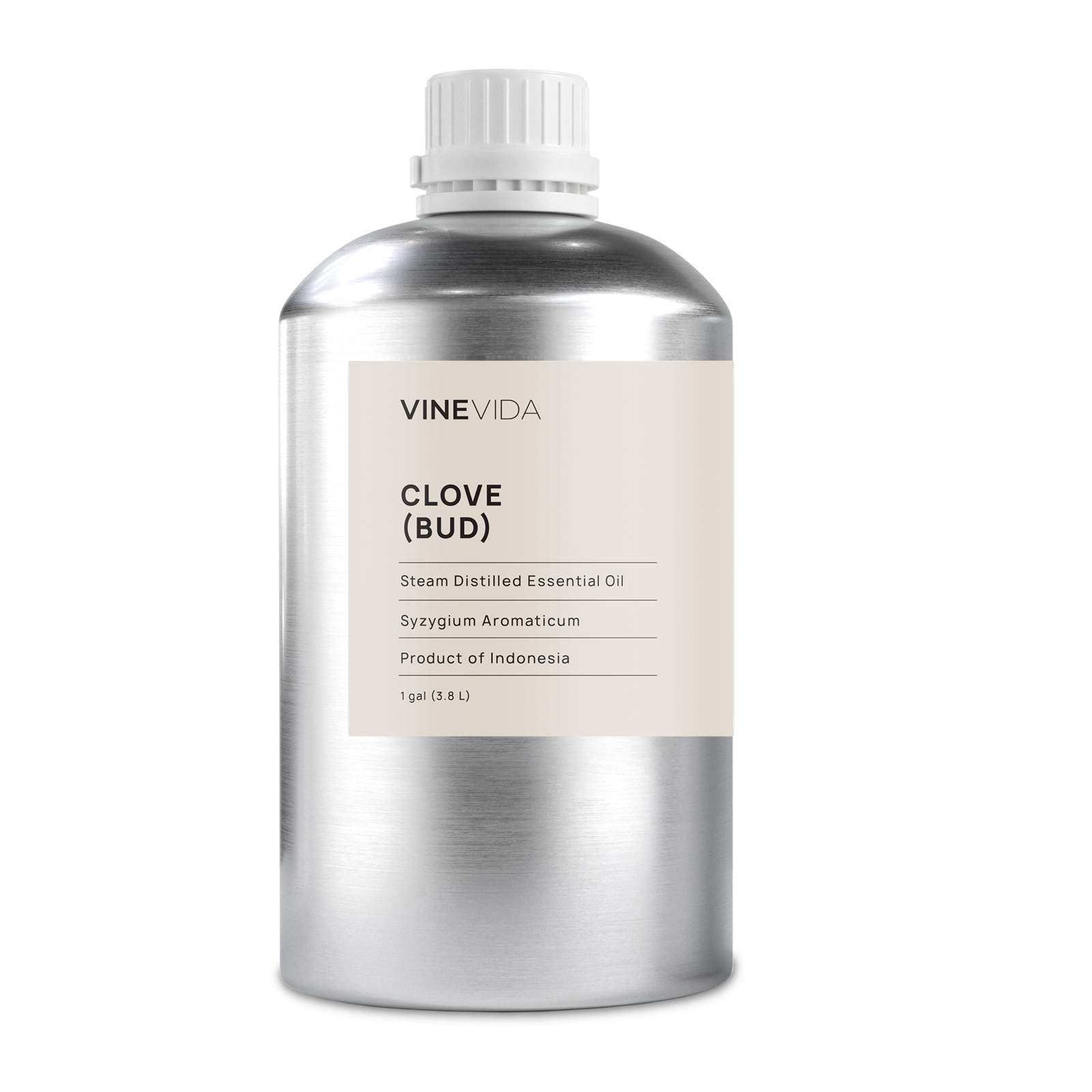
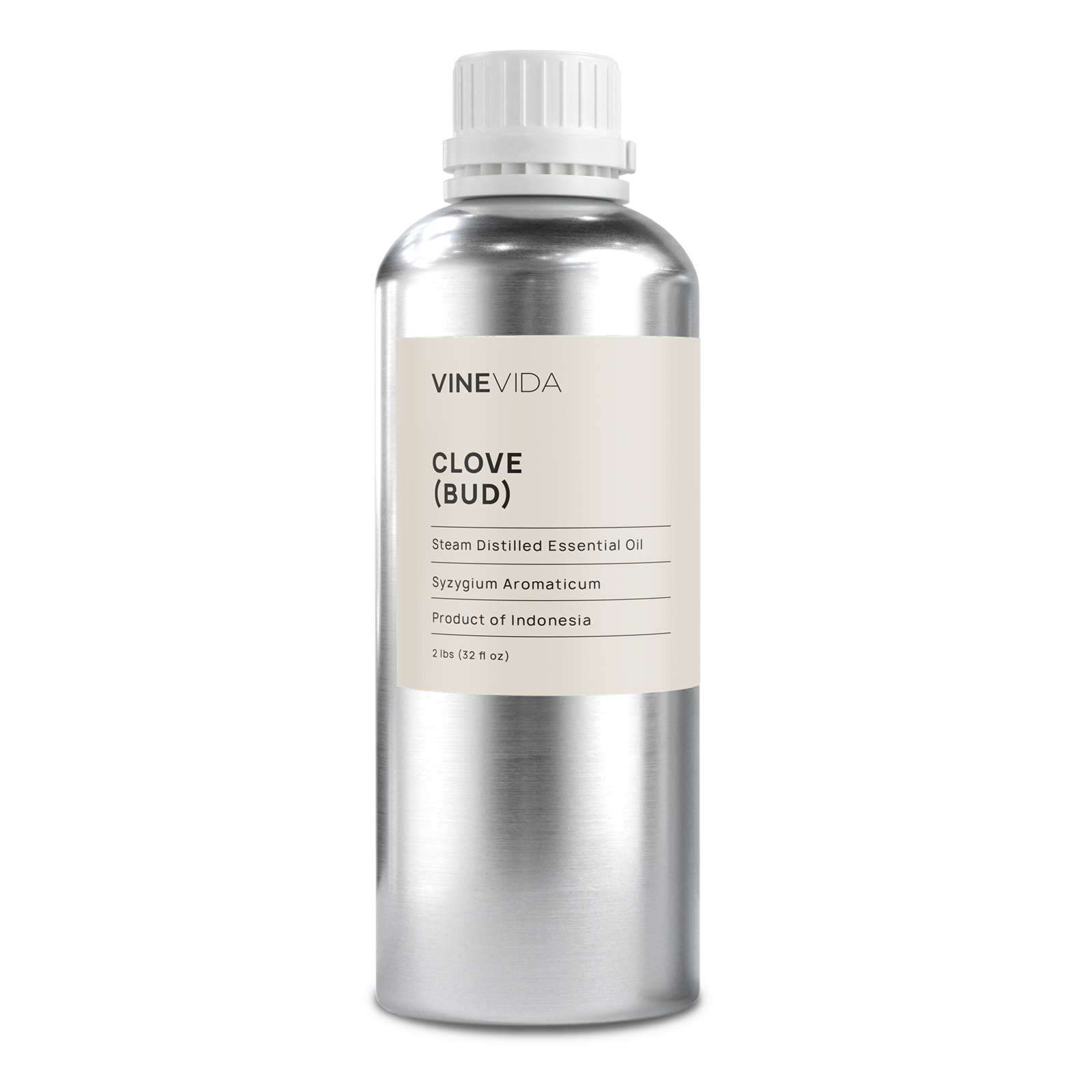
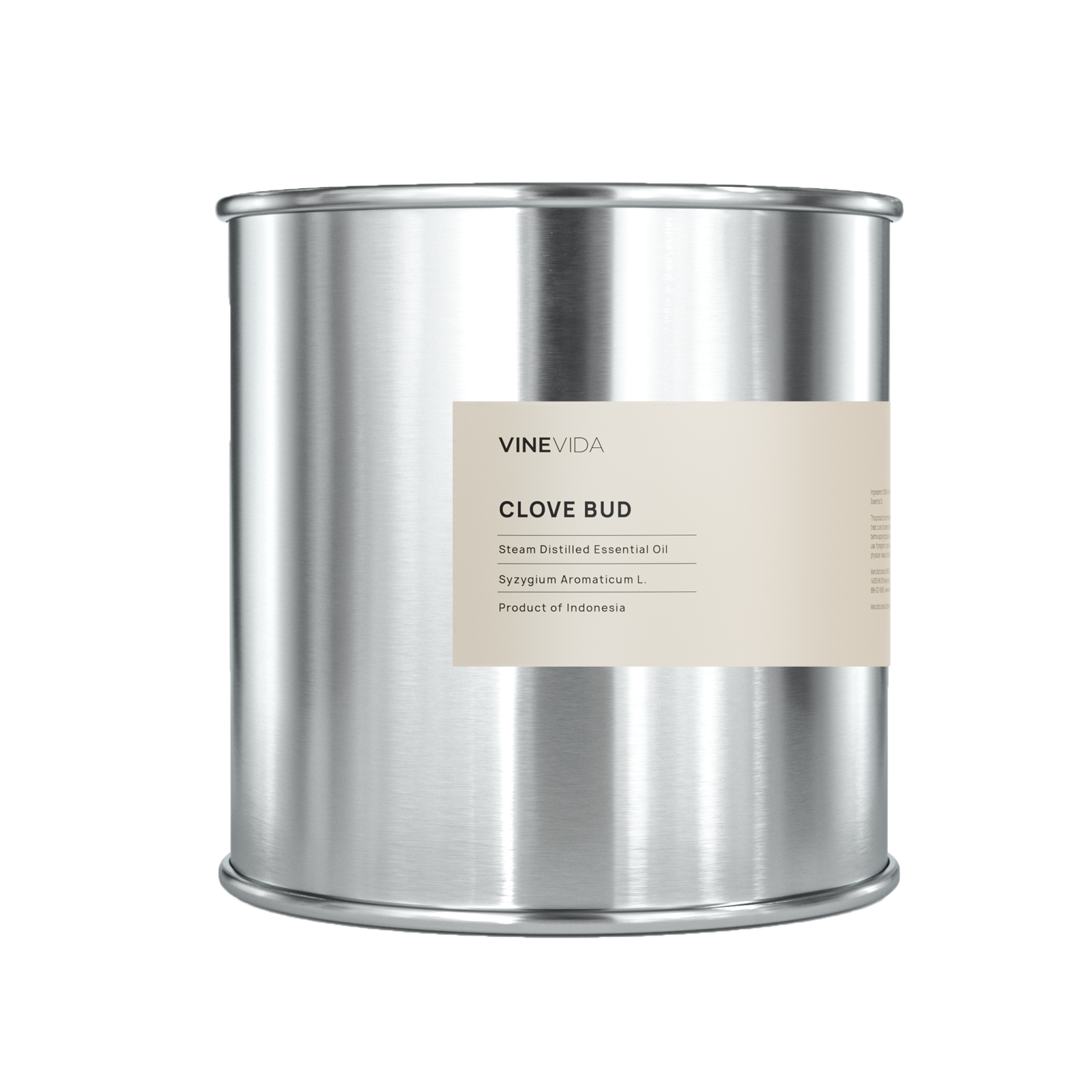
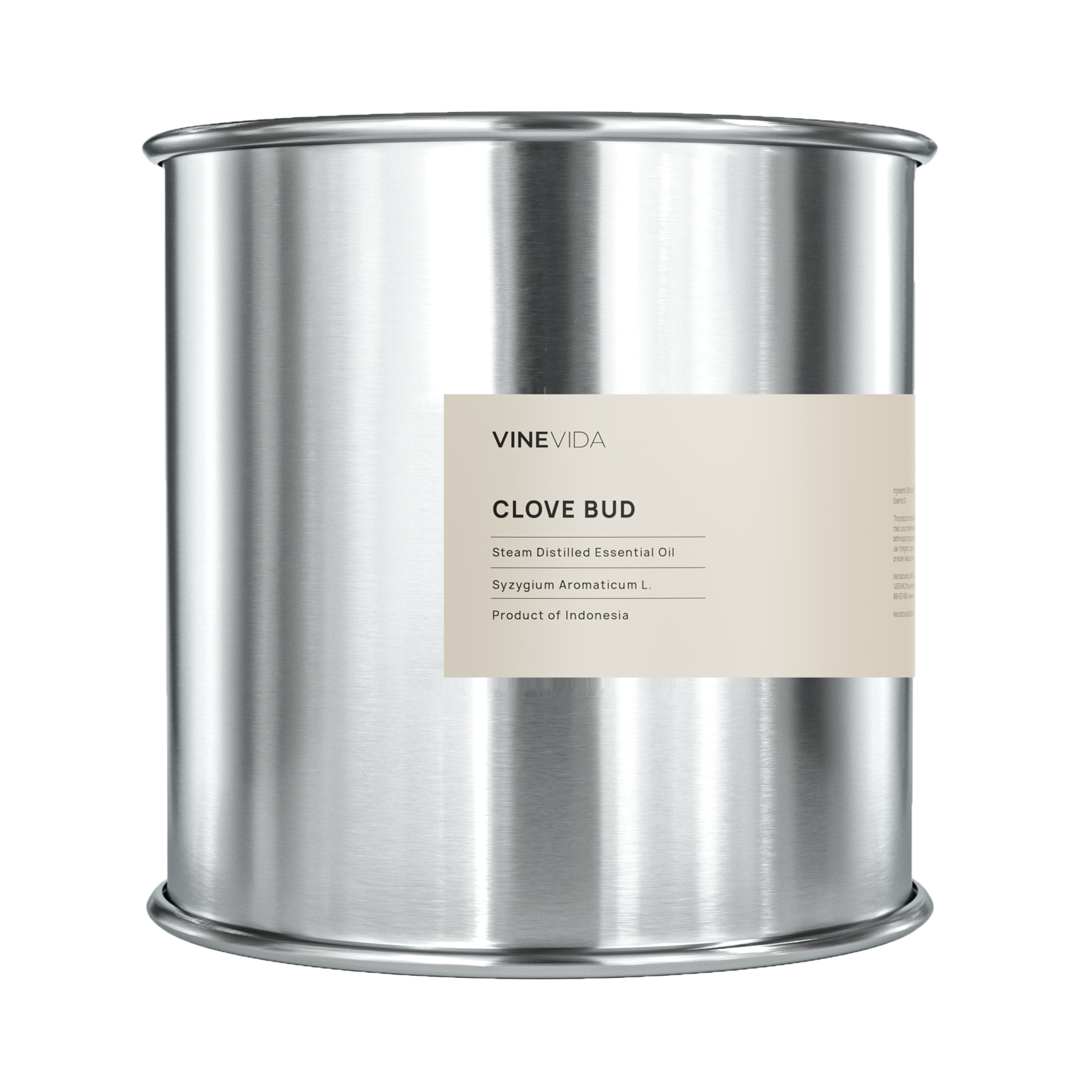
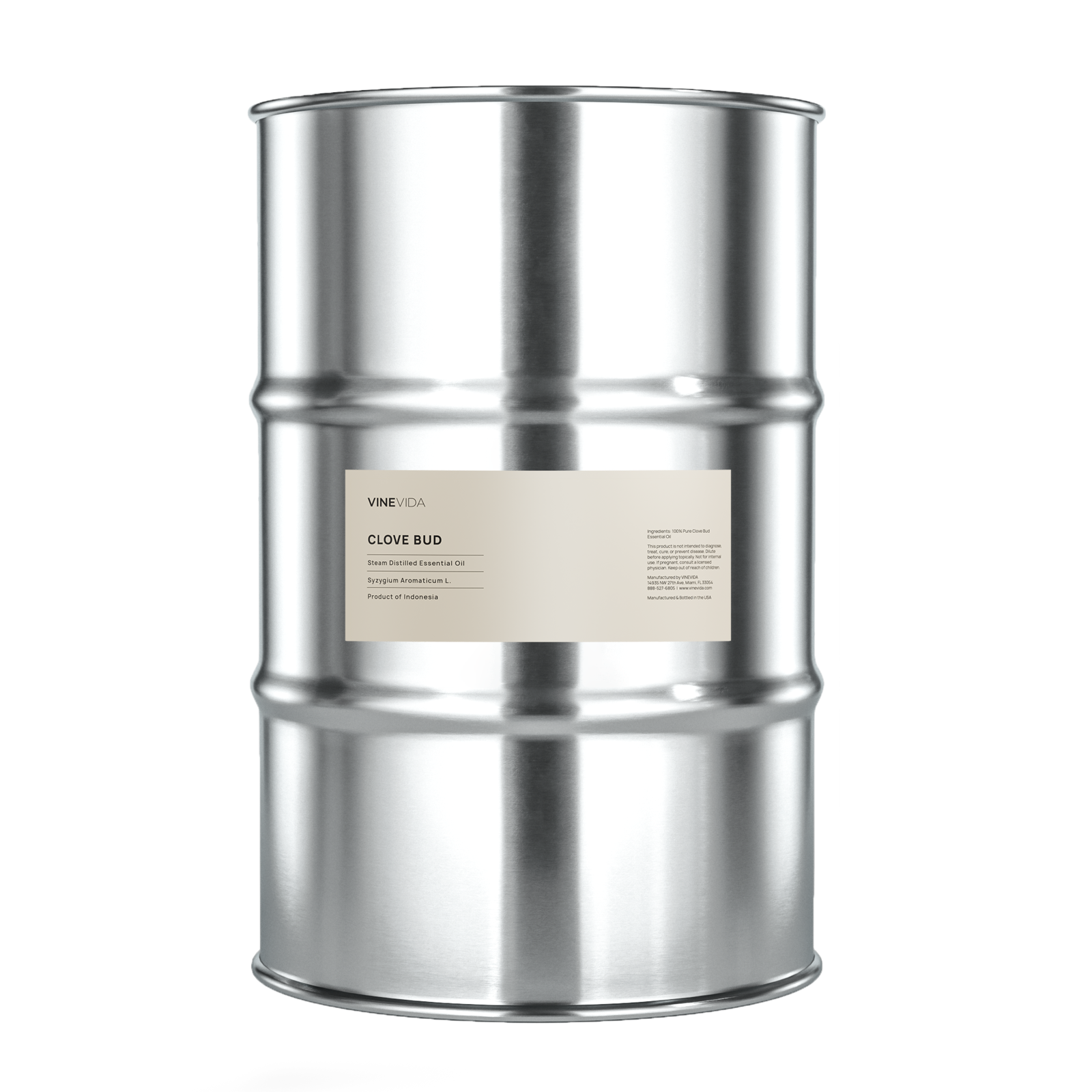





 Safety Data Sheet
Safety Data Sheet


















